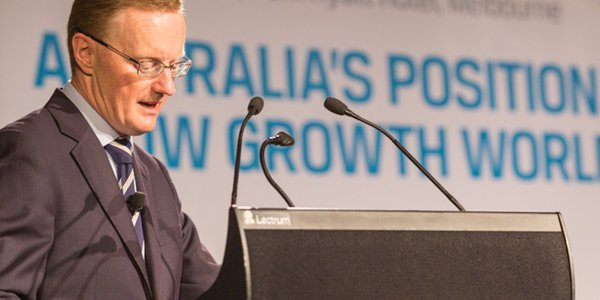Awarded Aussie Academic Attempts Awareness Awakening
Posted: October 15, 2014
Updated: June 4, 2017

With a grant from the Victorian Responsible Gambling Foundation Dr. Lowe hopes to make students aware of the knock-on effects of problem gambling.
The numerous detrimental effects of problem gambling on individuals, families and the communities in which they live are evident and manifest. The domino effect of social harm that stems from addiction and dangerous gambling behaviors is often seen as a range of differing issues that are rarely addressed as a whole given their scale and scope, the diverse nature of their effects intermingled with the numerous other factors that often play a part, dwarfing all possible response.
Gambling Awareness Program In Australian School
• Use of Mathematics and English classes to raise awareness
• Course would examine social knock-on effects
• Mobile betting on the rise amongst teen students
Treatment programs and community action groups have long battled to assist the victims, charities and non-governmental organizations doing their best to mitigate the effects in the same manner as is done with drug addictions, anti-social behavior and alcoholism. Obviously one of the key battlegrounds in each case is the classrooms of schools and colleges where young minds can be safely equipped with a sensible perspective and attitude to all and each of these.
Gambling is often not as high profile in this regard as perhaps it might, and a new study in Australia hopes to establish that there is an avenue to the reduction of the harmful social effects of problem gambling through the use of mathematics and English classes in schools. Certainly education has been of huge use in curbing behaviors deemed socially unacceptable, and the link been primary subjects and the basis of further education and structure is well known.
Dr. Ian Lowe, lead researcher, is working with the Maths Association of Victoria to find six city secondary schools who are willing to involve themselves in what would be a highly innovative multi-discipline program designed to link mathematical concepts such as probability and chance to awareness of addiction and the harmful social effects of problem gambling such as over use of gambling sites in Australia and elsewhere.
Grant Provides For New Study
The grant of nearly 49,000 AUD from the Victorian Responsible Gambling Foundation awarded to Dr Lowe comes on the back of previous research that showed some 80% of teenagers had, at some point in the previous 12 months, gambled in some mode or manner. Perhaps more legitimately alarming is the statistic that some 4% of teens are, even at their young years, to be considered as having problem gambling issues of their own making.
Addressing teens in the educational environment by mixture of subjects and topics to both introduce and illustrate the nature both of gambling itself and of its effects beyond the glitz and glamor with which it is so often associated. The differentiation between recreational use of facilities available and the problem gambling that has so many adverse effects is one best made in the classroom and meet the issue of normalization head on.
The spread of gambling is a matter of record. Liberalization of gambling laws in cities, states and indeed whole countries around the world has meant that there is an ongoing process of normalization whereby gambling ceases to be the hideous pernicious sin that outdated superstitions and authoritarian regimes have long attempted (and failed) to stamp out. In the modern western world gambling no longer has the religious propaganda to battle against.
In light of this growing exposure to gambling it is seen as only right to put what they’re seeing into some context and the program would set out to use mathematics to illustrate the possible negative impacts that perhaps the adverts for live opportunities to bet on sports in Australia don’t mention. This in of itself points to the crux of the onus behind this program, the access that has become available to teens in a techno-age.
Modern Technology Grants Increased Access
The huge advances in social technologies, the internet being the most evident example, have led to a sea change in the way we gamble with sites like Bet365, Bovada and Bodog providing just about every opportunity to wager one could want at the click of a mouse. Used responsibly these sites have opened up the world of gambling to a far greater, and on the whole more appreciative audience, the traditional shackles had been thrown off.
However some teens are illegally misusing the internet’s gambling facilities, but armed with mummy and daddy’s credit card numbers there is little to stop an intelligent teen from gambling on any number of Irish betting sites. The rise of live betting events on television is also seen as having increased the exposure of teens to gambling, but it is the video game sector of the market that is perhaps having the largest effect.
Research has shown that a quarter of all 13-17 year olds, despite the strict Australian gambling laws in place, have played gambling-styled video games with 10% overall having gambled on social media and 5% having done so on the mobile phones. The rise of net-capable technology obviously will continue to place exposure to gambling in the path of teens but Dr Lowe believes the possible harmful nature of problem gambling can be avoided.
Dr. Lowe made it clear that much of this would stem from the very honest approach of both “Explaining how sports gambling works” and then “how odds are set to ensure the margin for the company remains the same”. Which might be just the reality check necessary to stop a teenage problem becoming something everyone in society has to deal with. Prevention is always far better than cure and Dr. Lowe is looking in the right direction.
















